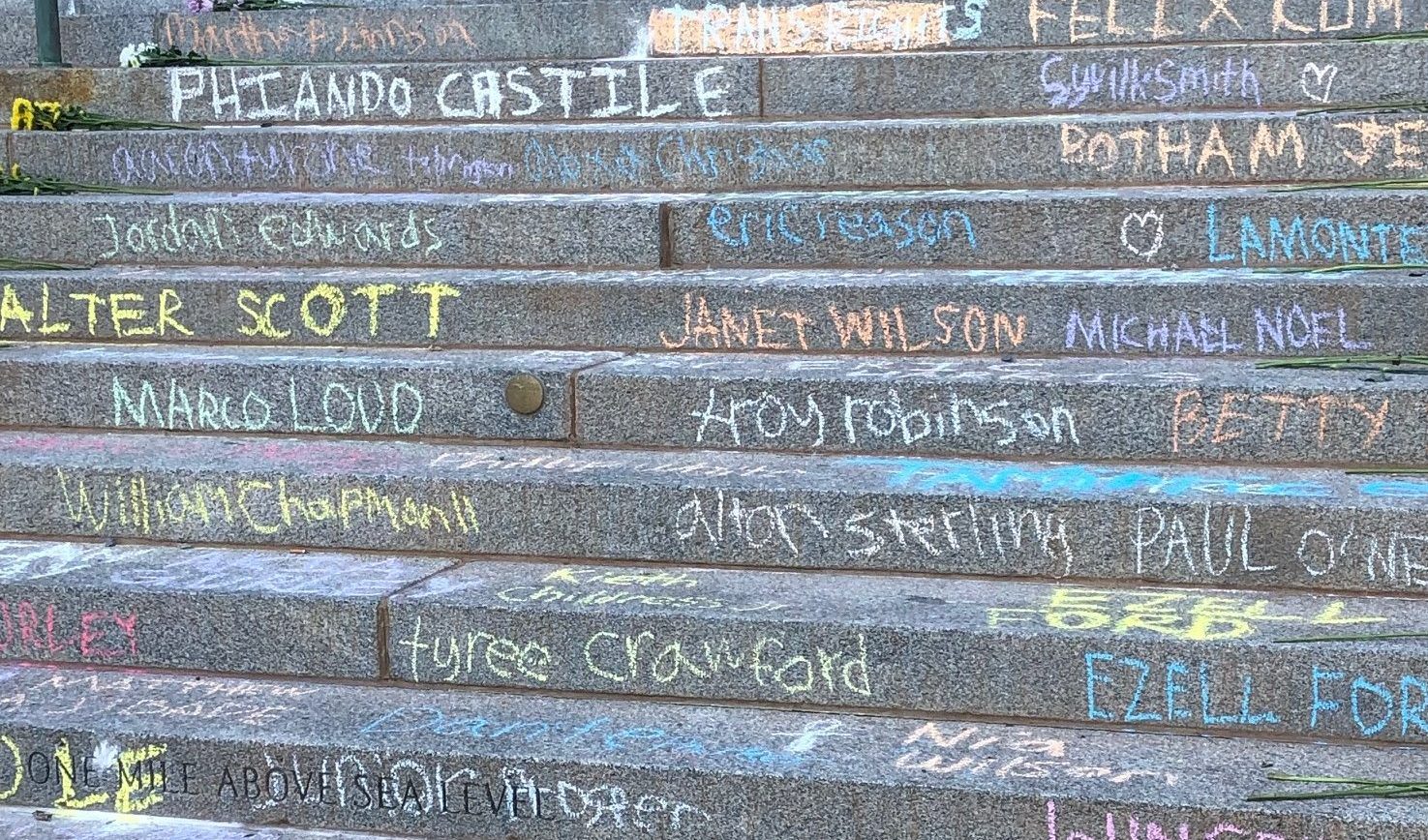Last month, I phoned in for a Broomfield-civic-leader-initiated, community-wide “town hall” about the death of George Floyd, nationwide protests and local police policy. Here are a few of my (belated) takeaways.
I left the call a little discouraged, to be honest, but since them I’ve been trying to be grateful for the call’s dose of reality as to how differently some of my neighbors and I perceive and understand the world. I believe, however, that any future dialogue we undertake as a community, whatever it may involve, needs to begin with our common ground. I heard in both staff and community comments that we all: love Broomfield, are grateful to live/work/send our kids to school here, care about our community, and want it to be a safe place. Those shared values need to be emphasized and re-emphasized.
At the same time, in my opinion, we also can’t ignore what’s happening around us. I’m hopeful that residents of Broomfield on all sides of this issue of our current societal upheaval would be able to participate in a conversation along the lines of:
- “This is who we are/where we are/what we have been to this point.” A lot of that is good, as was shared during the town hall. But Broomfield existed during the 30’s and 40’s and 50’s and 60’s, etc., there have been troubling interactions over the years between police and community members, we have intentionally zoned for affluence (affecting our diversity), and residents of color and other people on the margins of our community have in different ways been made to feel “less than.” I’ve heard some of these stories of how residents have seen the “shadow” side of Broomfield (and beyond), and these stories need to be solicited and told somehow. Police interactions are one facet of that, while I applaud the Broomfield Police Department’s adoption several years ago of the “#8cantwait” policing policies, I believe further reform is still needed. Having said that, our issues and challenges go beyond what the police do or don’t do.
- Also, it needs to be emphasized and acknowledged that “the Broomfield of 2020 is still a part of Colorado and the United States,” and although residents here may not experience racial injustice, etc., in the same way or to the same extent as other communities in our state or nation, we are still a part of this state and this nation. So, it’s important that we perceive the problems and challenges of our neighboring communities, and of our nation, as our shared problem and challenge, too.
- “This is the community we want to be.” We can and should strive to be better than we are and have been, because “good is always the enemy of great,” because while some of our residents may know Broomfield as a great community, other residents do not. So, let’s live up to our highest ideals — let’s embody a community where all residents come alongside each other in times of need, all have a voice and are valued, and all are heard and able to thrive. Until we reach that goal, we all have work to do. It’s not just city council’s job or the police department’s job or Community Reach’s job to work toward that goal. At bottom, we need to listen to each other’s stories and know each other’s names. None of us should be exempt from engaging in all this, and in fact, we can’t reach our ideals until everyone does engage. Which means this will take time and we need to be prepared for long-term dialogue and ongoing calls to action.
On a personal level, George Floyd’s death (and Elijah McClain’s, Breonna Taylor’s, Philando Castile’s, et al) has definitely heightened my concern for family members and friends and neighbors of color. I’m personally wrestling with and exploring what it might look like to take a stronger stand against racism, injustice and white privilege in Broomfield and beyond. I feel the long lack of action by people like me is a key cause of the situation we’re all in right now.


